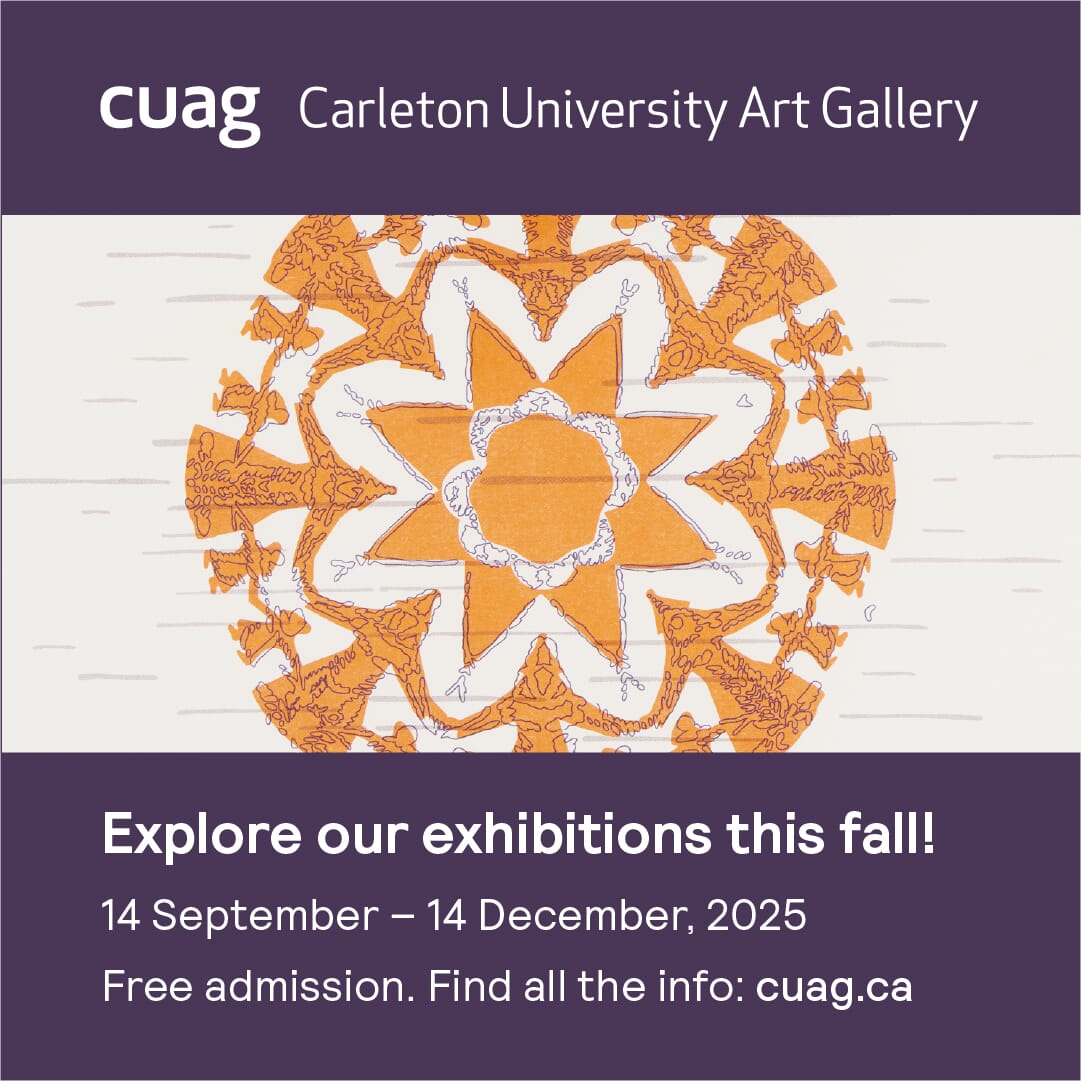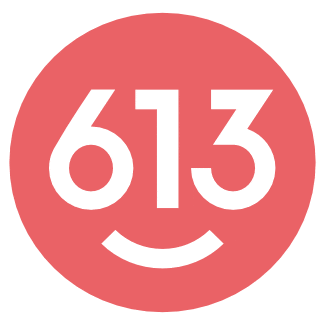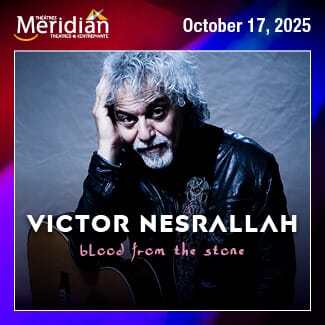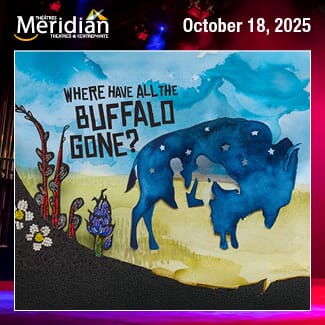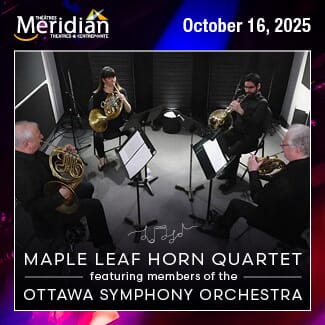To mark Holocaust Remembrance Week, Grammy-nominated ensemble Yiddish Glory plays at the National Arts Centre on January 25. The group performs resurrected songs created by Holocaust victims and survivors in Ukraine and Moldova that were thought lost to history.
We spoke with Canadian Historian Anna Shternshis, a professor of Jewish studies at the University of Toronto, who rediscovered the songs at the Vernadsky National Library in Kyiv, worked painstakingly to make sense of aging pieces of paper with Yiddish handwriting, assembled a group of musicians and recorded the songs as Yiddish Glory to honour the memory of those lost.
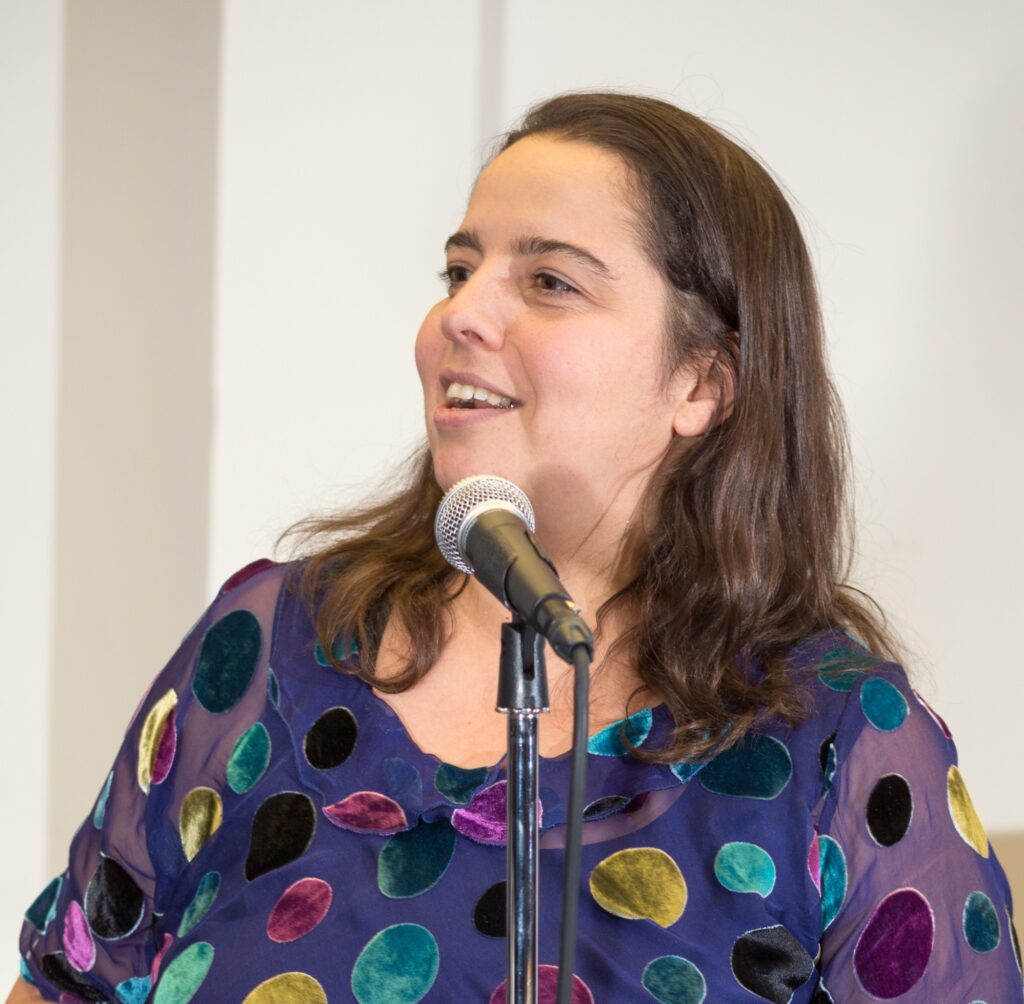
Anna Shternshis. Photo by Roman Boldyrev.
“These songs were written by amateur artists, many of whom were women and children,” explains Shternshis, “All of them were experiencing WW2 in the Soviet Union, whether as prisoners in the ghetto, as those evacuated to Central Asia, Ural Mountains, or Siberia, or serving in the Red Army. The material from this archive tells the story of how Soviet Jews survived or died in WW2, in their own words, as people lived through the violence.”
On many occasions, there are songs from places where nothing is left—no survivors, no memoirs, and all there are are the songs documenting Nazi atrocities. When Ukraine was liberated by the Red Army in 1944, survivors knew about the material. They told Moisei Beregovsky, a Soviet ethnomusicologist from Kyiv, who compiled the archive with stories, anecdotes, poems, and songs. He was studying how people made sense of everyday violence through music. He found survivors willing to sing for him; some people heard he was collecting the material and mailed him the songs; some found pieces of paper on the ground with Yiddish on them and gave them to Beregovsky.

Moisei Beregovsky and original documents. Photo provided.
Beregovsky was planning to publish the material in a book, but he was arrested in 1950 and accused of Jewish nationalism at the height of Stalin’s antisemitic policy enforcement. “Soviets had a strict understanding of how to talk about WW2,” adds Shternshis, “You could talk about the victims but you were not allowed to separate based on ethnic origins, so Jews could not talk about Holocaust targeting them.”
“In fact, out of the six million Jews who were killed, two and a half million were killed in the Soviet Union. The survival rate of Jews who stayed in Ukraine and Belarus was less than 1%,” said Shternshis in a Forbes interview.
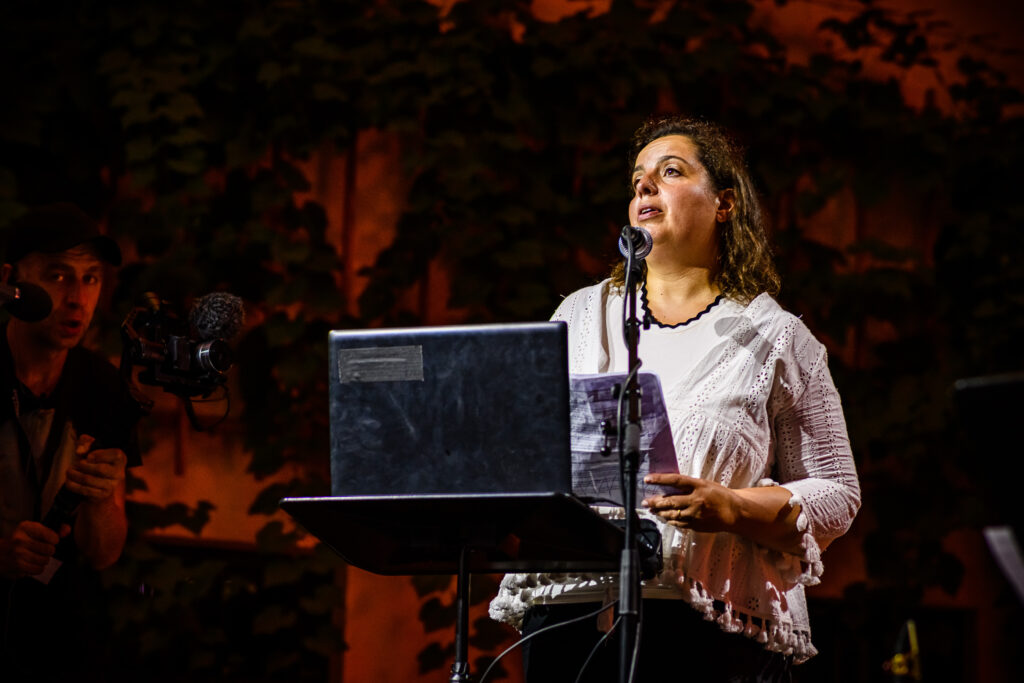
Anna Shternshis. Photo courtesy of Sascha Osaka, Glatt & Verkehrt.
When Beregovsky was arrested as a presumed collaborator with Jews, the materials were confiscated, and he was told they would all be destroyed. He agreed to let the documents be destroyed if it meant a lesser sentence. When he was released in 1956, he was not allowed to see the records, and he died in 1961, thinking they were lost forever. The songs were thought to be physically lost and lost in the memory of survivors as it was dangerous to recount memories of the Holocaust, and Jewish families discouraged it out of fear of persecution.
When the Soviet Union collapsed, handwritten materials were found in Ukraine’s National Library in restricted access materials (where many confiscated records were kept). “I was fortunate to be the first historian to look at this document,” says Shternshis, “I realized they were unique songs, there is no parallel to these texts anywhere in Europe.”
Shternshis worked with multiple scholars and artists, such as Psoy Korolenko, to bring the songs back to life as music and collaborated with producer Dan Rosenberg to build the band. On January 25, Yiddish Glory performs with Psoy Korolenko, Vocals; Alice Zawadzki, Vocals, Violin (who is coming from London, UK), and Canadian pianist Jeremy Ledbetter.
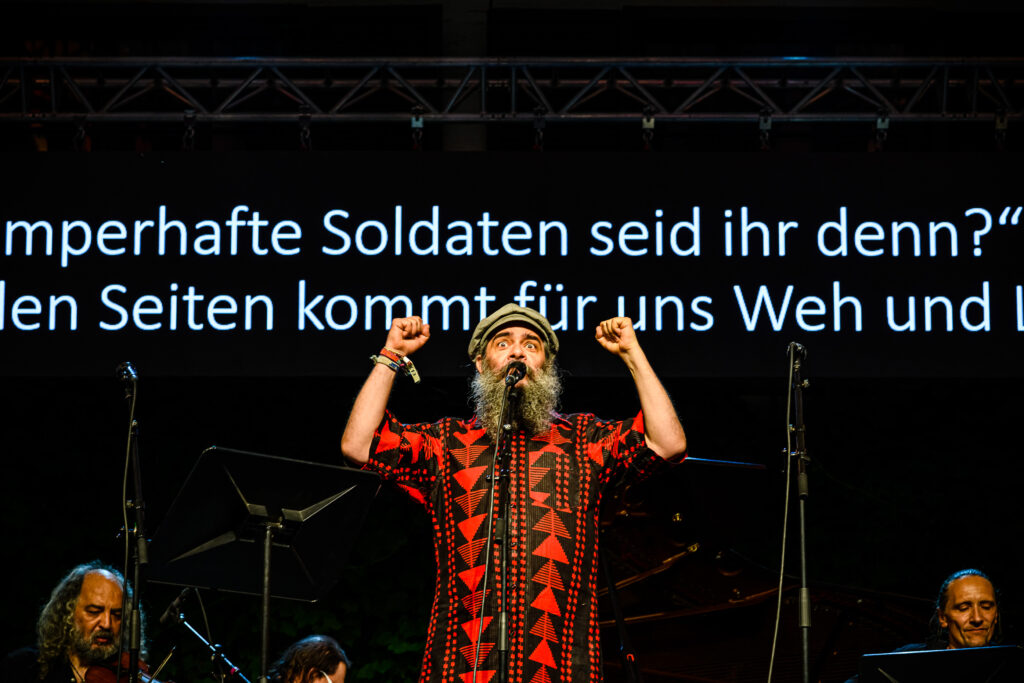
Yiddish Glory, Psoy Korolenko. Photo courtesy of Sascha Osaka, Glatt & Verkehrt.
“I’ve always said this project keeps getting timely,” says Shternshis, “One of the findings in Yiddish Glory is that children and the elderly are the most vulnerable when it comes to war. There is a universal message of suffering. The songs talk about two things—Jews being persecuted just for being Jews and children being killed just because they’re caught in wars for no reason.”
The first and only CD so far by Yiddish Glory was nominated for a Grammy award. At the NAC, the group will perform songs from the original CD and new material that has never been heard since 1945. Next year, the group hopes to release a new album and a book about the preservation journey of this poignant material.
Tickets are available on the NAC website for $28.75, and the concert is held at the Fourth Stage at 8pm.







